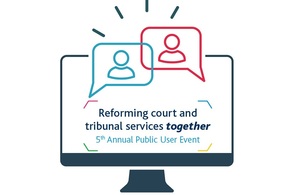ICIBI stakeholder engagement survey – Results

In response to the stakeholder survey results, David Neal, the Independent Chief Inspector, said:
I welcome the responses to this survey and thank all those who took the time to contribute.
I am encouraged to find that stakeholders find participation with the ICIBI worthwhile, and gratefully take on board the suggestions for improvement.
Several suggestions were made for topics for future inspections, all of which have been noted and will form part of my consideration for my 2022 inspection programme.
I will now conduct a survey on an annual basis, to further inform my approach, and encourage participants to be as candid as possible in their responses. I would also like to remind stakeholders that they are free to contact me at any time, either directly or through inspectors.
Survey Results
Stakeholders who have previously engaged with the ICIBI through our fora, interviews or by submitting evidence for an inspection were invited to participate in the survey by email, and through the ICIBI’s website and Twitter.
The survey asked questions relating to stakeholders’ experiences of engaging with the ICIBI. It also asked questions about how they use ICIBI reports, and their views on the value of the recommendations we make.
Sixty-eight stakeholders from the ICIBI database were contacted by email, drawing their attention to the survey.
The survey was completed by 28 stakeholders in total, although not all respondents answered every question.
26 respondents described themselves/ their organisation as follows:
| Participant | Number of respondents |
|---|---|
| NGO | 13 |
| Home Office contractor/service delivery on behalf of the Home Office | 3 |
| Other * | 3 |
| Trade association | 1 |
| Community group | 1 |
| Local authority | 1 |
| Local authority partnership (e.g. regional strategic migration partnership) | 1 |
| Academic or researcher | 1 |
| Direct personal experience of Home Office’s border or immigration functions, e.g. EU citizen, asylum seeker, refugee | 1 |
| Interested member of the public | 1 |
| Other | 3 |
Headline findings were as follows:
- Generally, stakeholders reported to finding engaging with the ICIBI worthwhile.
- Many stakeholders said they use ICIBI reports for advocacy and engagement with the Home Office. They value the access to information the ICIBI has, and the Home Office’s duty to respond. ICIBI findings which align with their concerns add weight to their advocacy.
- Stakeholders said they were broadly happy with the communication from inspectors, although it was suggested that there could be more follow up engagement, to update on progress of inspections.
- Stakeholders welcome advance notice of inspection findings, dates reports are sent to the Home Secretary and publication dates of reports.
- Seventeen out of 25 respondents said the Home Office responses to ICIBI recommendations were not adequate. There is frustration at how long reports take to be published, which can render recommendations out of date. There was appetite for the ICIBI to be more proactive in following up progress on recommendations.
- Specific concerns were raised about the Home Office not following up on actions to address recommendations made by the IAGCI which had been ‘accepted’.
- Ten out of 26 respondents “strongly agreed” or “agreed” that ICIBI reports adequately addressed equality and diversity issues. Fourteen said they “neither agreed nor disagreed”, and 2 either “disagreed” or “strongly disagreed”.
- Stakeholders were positive about the ICIBI stakeholder fora, describing them as a useful way to hear about and feed into the inspectorate’s priorities and reports. They were happy with the frequency of which they were convened. Several recommendations were made for additional participants.
As responses were anonymised, the ICIBI is not able to respond directly to those who contributed. However, they responses will inform future stakeholder engagement, and work is already underway to follow up on feedback received.
Last updated 16 November 2021 + show all updates
-
Headlines added to the article
-
First published.

